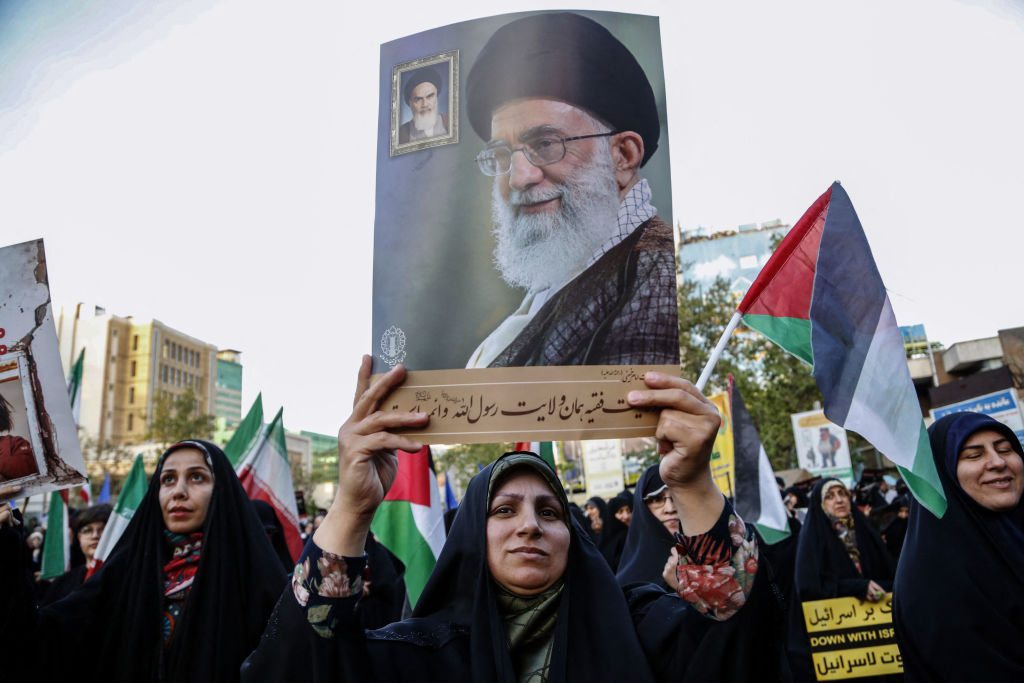For a time after 9/11, it was clear that intergovernmental cooperation would be necessary to stop terror financing and money laundering by terror groups. But the world is moving on to a new and more dangerous dynamic.
U.S. allies in Europe and the Middle East are ignoring the recommendations and directives of the Financial Action Task Force, one of the most critical groups in the world in the effort to protect banks from unlawful activities. As a result, the likelihood has long been rising of confrontations with terrorism in the streets or on the battlefield, instead of on bank balance sheets. Iran’s massive drone and missile attack against Israel over the weekend may be just the beginning.
Initially created by the G7 countries, the Financial Action Task Force has expanded to include more than 200 countries and organizations that have committed themselves to protecting global banking from terror financing and money laundering. While it has set standards and developed recommendations, it lacks any means of enforcement.
Its current trajectory suggests a regrettable descent into insignificance. The culpability for this decline largely rests with the U.S., whose recent actions, particularly regarding transfers from South Korea and Iraq to benefit Iran’s Islamic Revolutionary Guard Corps (IRGC), have cast doubt upon the importance Washington places on combating terror financing.
Despite 40 recommendations from the task force that should compel member-states to expel Iranian banks, multiple task force member-states — China, France, Germany, Greece, Hong Kong, Italy, Malaysia, South Korea, Turkey and the United Kingdom — continue to host Iranian terror-listed banks, including banks tied to weapons of mass destruction.
Bank Melli, known to be “a conduit for payments to the IRGC-QF,” has branches in Hamburg, Hong Kong, London, Paris and throughout the UAE. Saman Bank, with branches in Frankfurt and Rome, is also implicated in supporting the IRGC due to its supervision by the IRGC-supporting Central Bank of Iran. Bank Saderat, “one of the largest Iranian-owned banks,” is infamous for its facilitation of hundreds of millions of dollars in support of Hezbollah but nevertheless operates openly in Germany, Greece, Italy and the UK. Its London branch is located directly opposite the Bank of England.
In addition, Iran’s oldest bank, Bank Sepah, has branches in Athens, Hamburg, Frankfurt, London, Paris, Rome and Seoul. Bank Tejarat, another Iranian bank believed by the Treasury Department to be advancing Iran’s nuclear program, likewise occupies prime real estate in Paris and has a presence in both London and Milan through holdings in Persia International Bank. The Bank of Industry and Mine, designated by the U.S. Treasury in 2011 for “facilitating transactions in support of Iran’s proliferation activities,” is based in Hamburg.
The only reasonable conclusion is that these task force member-states don’t believe they will suffer harm to their credibility, legitimacy or reputations for refusing to take clear and obvious steps to achieve the task force’s objectives. The U.S., as the global leader, bears responsibility for this situation.
Over the last three years, the U.S. has failed at nearly every turn to stop Iranian terror financing schemes. Despite sanctions that prohibit participation in the trade of Iranian oil or petroleum products refined in Iran because proceeds directly benefit the IRGC and other terror organizations, the U.S. has taken limited action to hold bad actors accountable.
China has purchased more than $90 billion of Iranian oil since President Biden assumed office, but no Chinese entities have been held accountable. Four out of every 10 vessels worldwide that are credibly suspected or have been proven to have supported Iranian sanctions evasion are registered in Panama, but the U.S. has not imposed direct consequences on its ally for aiding and abetting terror financing. The U.S. has shown itself capable of seizing vessels laden with Iranian oil but has done so on only a handful of occasions, suggesting it is interested only in performative enforcement.
Worse, the U.S. has given its blessing to banks in South Korea and Iraq to release billions of dollars to Iran — and by extension to its Islamic Revolutionary Guard Corps terrorists — that had been frozen under terrorism-related sanctions. The money owed was for the purchase of Iranian oil.
As recently as this month, the U.S. renewed a 120-day waiver allowing Iraq to pay Iran for electricity, so long as the money is “held in restricted accounts” and “used for transactions for the purchase of food, medicine, medical devices, agricultural products, and other non-sanctionable transactions,” as if money were not fungible.

To prevent the Financial Action Task Force from degrading into an irrelevant locus of sinecures for diplomats and bureaucrats, the U.S. has to push its allies to act with determination and, most importantly, do so itself. If it fails to do so, and terror financing becomes acceptable in practice, the risk to public safety will increase.
The U.S. must demand that the world forcefully execute the task force’s recommendations. The world needs the U.S. to lead by example and demonstrate that combating terror financing is a top priority.
Daniel Roth is the research director for United Against Nuclear Iran, where he directs business intelligence and corporate engagement efforts.
Copyright 2024 Nexstar Media Inc. All rights reserved. This material may not be published, broadcast, rewritten, or redistributed.

